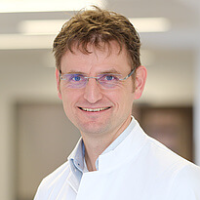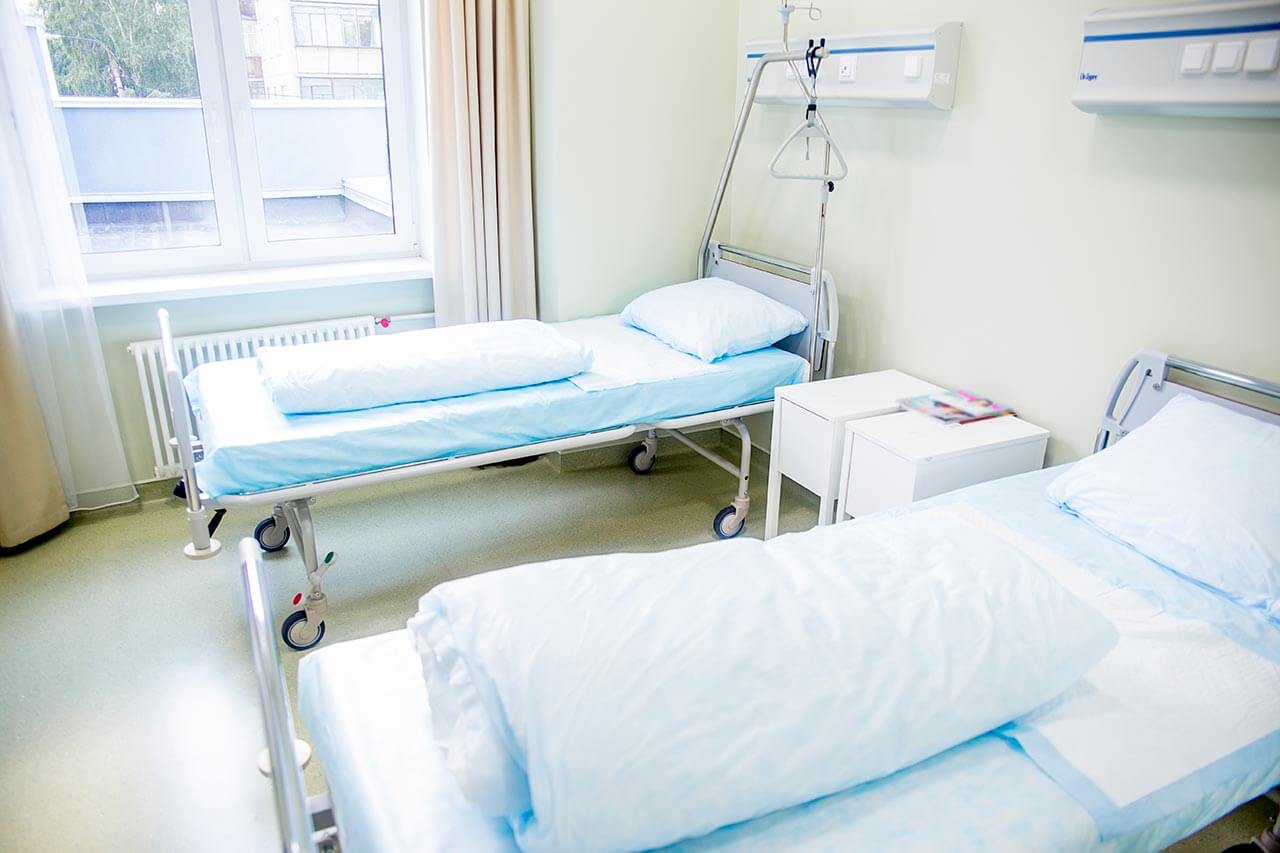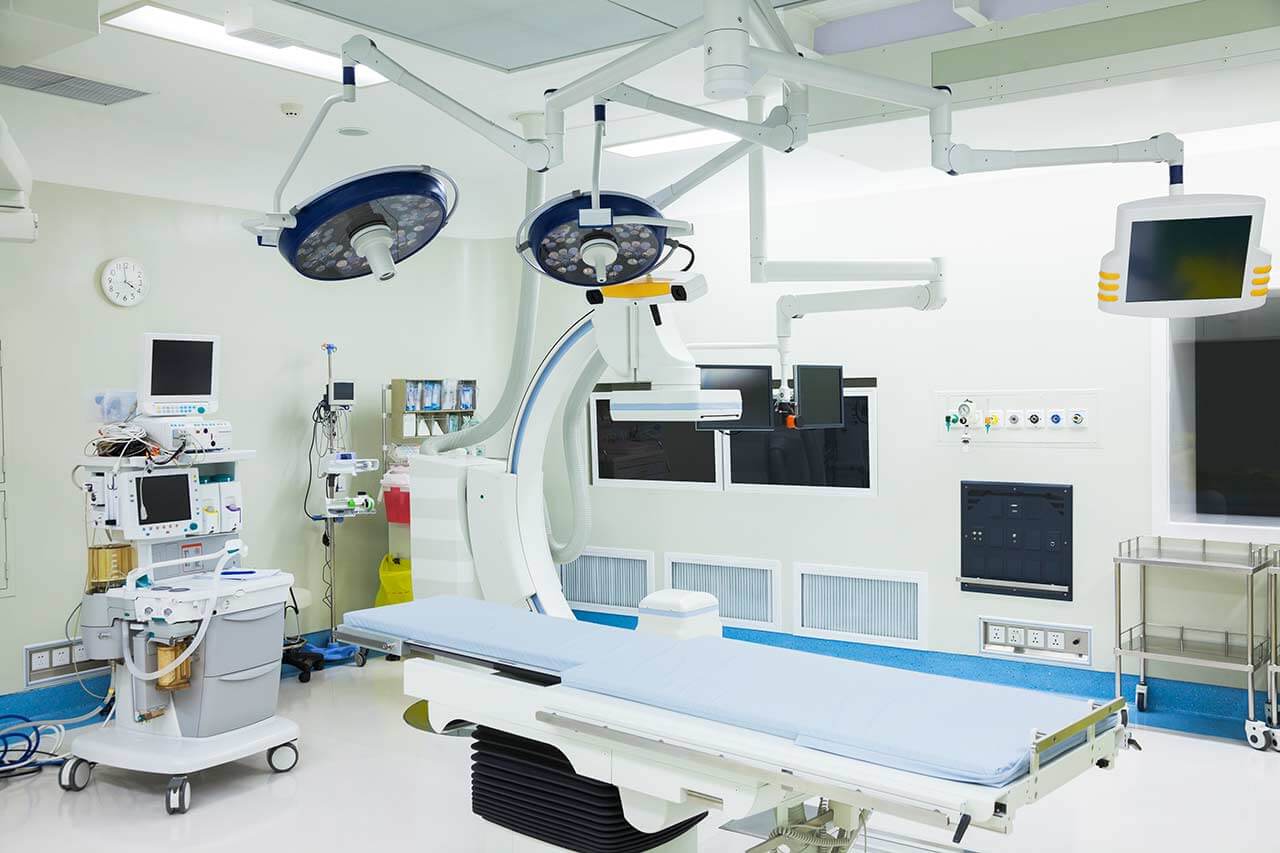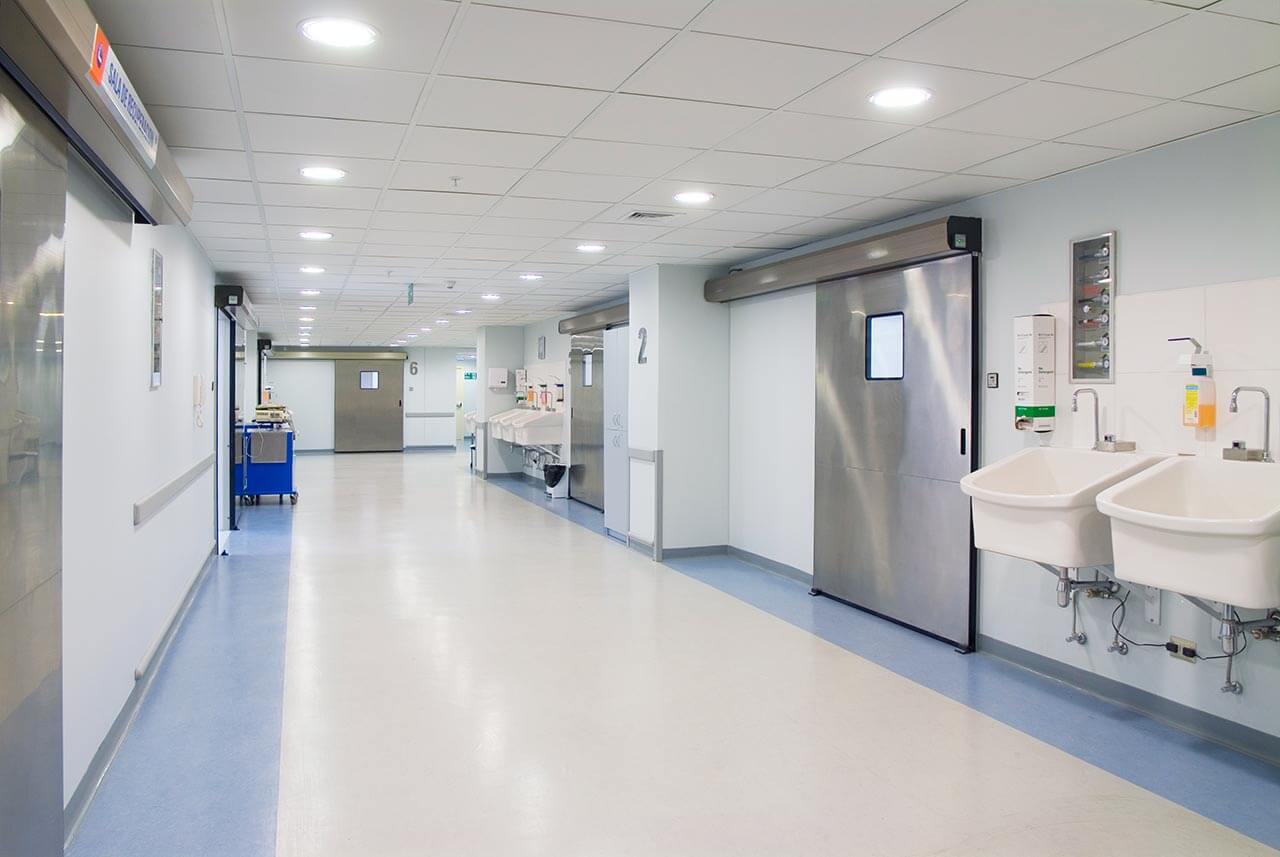
About the Department of Cardiac Surgery at University Hospital Oldenburg
The Department of Cardiac Surgery at the University Hospital Oldenburg provides a full range of surgical treatment in its area of specialization. Special emphasis is placed on heart valve repair and replacement surgery, coronary artery bypass grafting, thoracic aortic surgery, adult congenital and acquired heart disease surgery, pacemaker and defibrillator implantation, and artificial heart implantation for severe heart failure. Many heart operations are performed using minimally invasive techniques, which has a positive effect on the healing of the surgical wound. Minimally invasive cardiac procedures also reduce surgical risks and contribute to a rapid recovery of the patient in the postoperative period. Surgical treatment of cardiac pathologies is performed in advanced operating rooms equipped with the latest technology. The cardiac surgeons of the department successfully perform routine and complex surgical procedures, saving the lives of thousands of patients. The specialists work in accordance with current clinical protocols and follow the recommendations of the German Society for Thoracic and Cardiovascular Surgery (DGTHG). The Head Physician of the department is Prof. Dr. med. Andreas Martens.
The most popular surgical procedure in the department's clinical practice is coronary artery bypass grafting (CABG). The department performs more than 900 of these procedures annually. CABG is the most effective method of treating ischemic heart disease, in which hypoxic damage to the heart muscle (myocardium) occurs against the background of coronary artery stenosis or occlusion. The department performs all currently available modifications of CABG: the classical version of coronary artery bypass grafting using a heart-lung machine, off-pump coronary artery bypass grafting (OPCAB), minimally invasive direct coronary artery bypass grafting (MIDCAB), and a hybrid CABG technique combining the use of open surgical techniques and catheter-based procedures. The purpose of coronary artery bypass grafting is to provide an additional arterial blood supply to the heart muscle by bypassing the diseased coronary artery. The optimal CABG technique for each patient is determined on an individual basis. Whenever possible, OPCAB or MIDCAB techniques without the use of a heart-lung machine are preferred.
The department's cardiac surgeons are highly skilled in the surgical treatment of aortic and mitral valve disease, which often requires removal of the affected heart valve and subsequent implantation of a biological or synthetic prosthesis. The department's specialists also perform operations to repair heart valves, when surgeons seek to preserve the patient's own heart valve. When heart valve repair or replacement is necessary, the experienced physicians in the department review each clinical case individually and select the optimal surgical technique. The department prioritizes minimally invasive procedures to repair and replace the aortic and mitral valves. These procedures are performed through a minimally traumatic 5-6 cm incision, which results in rapid healing of postoperative wounds and eliminates the respiratory problems associated with open sternotomy.
The department offers an innovative method of aortic valve replacement – transcatheter aortic valve implantation (TAVI). The surgical procedure is performed using catheter-based techniques without opening the sternum and without the use of a heart-lung machine. The TAVI procedure is highly safe and its effectiveness is comparable to that of open-heart surgery.
One of the department's main areas of expertise is the surgical treatment of thoracic aortic disease. The department performs classical open and endovascular interventions on the aorta (in cooperation with doctors from the Department of Interventional Radiology). Specialists successfully perform thoracic endovascular aortic repair (TEVAR) for the treatment of aneurysms and aortic dissections. The essence of the surgical procedure is the implantation of a stent graft to strengthen the blood vessel wall at the site of the aneurysm and prevent aortic rupture. Depending on the complexity of the clinical case, the surgery is performed under general or local anesthesia. The procedure takes 1-2 hours.
An integral part of the department's clinical practice is the treatment of heart arrhythmias. Cardiologists work closely with electrophysiologists in the diagnosis and treatment of this spectrum of pathologies. Surgical treatment of arrhythmias includes implantation of pacemakers, event recorders, and defibrillators. The department's cardiac surgeons perform about 1,000 surgical procedures per year in this area, which indicates a high level of professionalism and successful treatment results.
The department's range of surgical services includes the following:
- Coronary artery bypass grafting
- Classical coronary artery bypass grafting using a heart-lung machine
- Off-pump coronary artery bypass grafting (OPCAB)
- Minimally invasive direct coronary artery bypass grafting (MIDCAB)
- Hybrid coronary artery bypass grafting technique combining open surgical techniques and catheter-based techniques
- Surgery for heart valve disease
- Minimally invasive aortic and mitral valve replacement surgery, including the innovative TAVI procedure
- Minimally invasive aortic and mitral valve repair surgery
- Surgery for thoracic aortic disease
- Thoracic endovascular aortic repair (TEVAR)
- Surgery for peripheral artery disease
- Carotid artery surgery
- Iliac artery surgery
- Femoral artery surgery
- Surgery for congenital and acquired heart defects in adults
- Atrial septal defect surgery
- Ventricular septal defect surgery
- Left ventricular aneurysm surgery
- Surgery for tumors of the heart and nearby organs (in collaboration with specialized surgeons)
- Surgery for heart arrhythmias
- Surgery for the implantation of 1-, 2-, and 3-chamber pacemakers and defibrillators
- Surgery for the implantation of an event recorder
- Radiofrequency catheter ablation
- Surgery for heart failure
- Ventricular assist device implantation
- Artificial heart implantation
- Surgical treatment of respiratory failure
- Extracorporeal membrane oxygenation (ECMO)
- Other surgical options
Curriculum vitae
Higher Education and Professional Career
- 1996 - 2002 Medical studies, Hannover Medical School.
- 12.2002 - 05.2004 Internship, Department of Cardiothoracic Surgery, Hannover Medical School; Department of General Surgery, Hospital Oststadt Hannover.
- 01.06.2004 Admission to medical practice.
- 14.07.2004 Thesis defense and doctorate.
- 2002 - 2011 Residency in Cardiac Surgery, Department of Cardiothoracic Surgery and Transplant Surgery, Hannover Medical School.
- 2004 - 2023 Surgeon (specialization: chest organ transplantation), German Organ Transplantation Foundation (DSO).
- 2006 - 2008 Assistant Physician, Department of Cardiothoracic Surgery and Transplant Surgery, Hannover Medical School.
- 2009 - 2021 Board Member (2009-2019 – Research Fellow; 2017-2021 – Member of the Habilitation Preparation Group), Surgery Center, Hannover Medical School.
- 30.03.2011 Board certification in Cardiac Surgery, Medical Association of Lower Saxony.
- 2011 Senior Resident, Intensive Care Unit, Department of Cardiothoracic and Transplant Surgery, Hannover Medical School.
- 2011 - 2023 Deputy Radiation Protection Specialist, Department of Cardiothoracic and Transplant Surgery, Hannover Medical School.
- 01.2012 - 10.2022 Senior Physician (specialization: thoracic aortic surgery), Department of Cardiothoracic and Transplant Surgery, Hannover Medical School.
- 07.2012 Advanced training in minimally invasive heart valve surgery, Massa, Italy.
- 01-02.2013 Advanced training in open and endovascular aortic surgery, Cedars-Sinai Medical Center, Los Angeles, USA.
- 06.2016 Founding Member of the Hans Borst Academy.
- 08.03.2017 Habilitation and Venia legendi in Cardiac Surgery.
- Since 01.2020 Member of the Commission for the Promotion of the Education of Talented Medical Students and Advanced Training, German Society for Thoracic and Cardiovascular Surgery (DGTHG).
- 01.2020 - 03.2023 Managing Senior Physician, Department of Cardiothoracic Surgery and Transplant Surgery, Hannover Medical School.
- Since 02.2020 Member of the Commission for Aortic Surgery, German Society for Thoracic and Cardiovascular Surgery (DGTHG).
- Since 2020 Member of the Aortic Dissection Working Group, European Association for Cardio-Thoracic Surgery (EACTS).
- 09.2020 Extraordinary Professorship, Hannover Medical School.
- Since 2020 Member of the Scientific Advisory Board for Aortic Surgery.
- 10.2022 - 10.2023 Head of the Section for Thoracic Aortic Surgery, Department of Cardiothoracic Surgery and Transplant Surgery, Hannover Medical School.
- Since 11.2023 Head Physician, Department of Cardiac Surgery, University Hospital Oldenburg.
Clinical Interests
- Surgical treatment of thoracic aortic diseases.
- Surgical treatment of aortic valve diseases and aortic root dissection.
- Surgical treatment of coronary artery diseases.
Research Interests
- Aorta and aortic valve surgery, including aortic valve repair.
- Minimally invasive methods in aortic and heart valve surgery.
- Myocardial revascularization.
- Treatment of heart pathologies with stem cells.
Photo of the doctor: (c) Klinikum Oldenburg AöR




